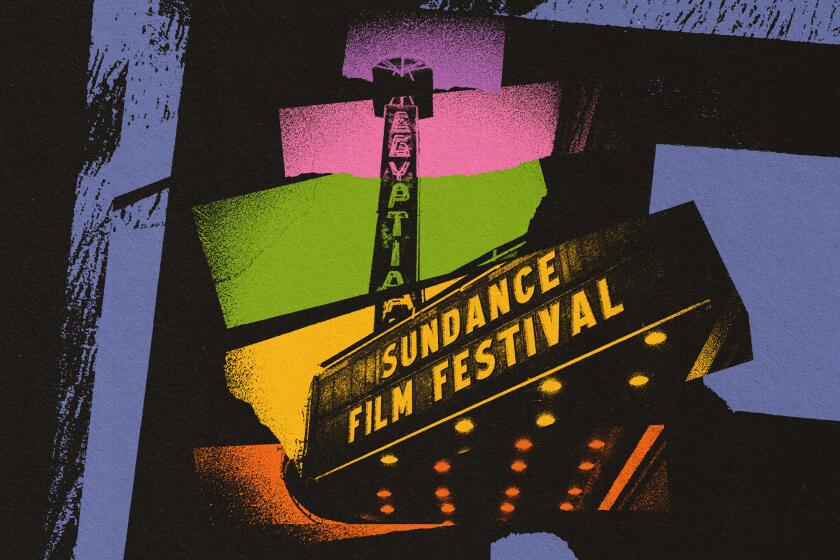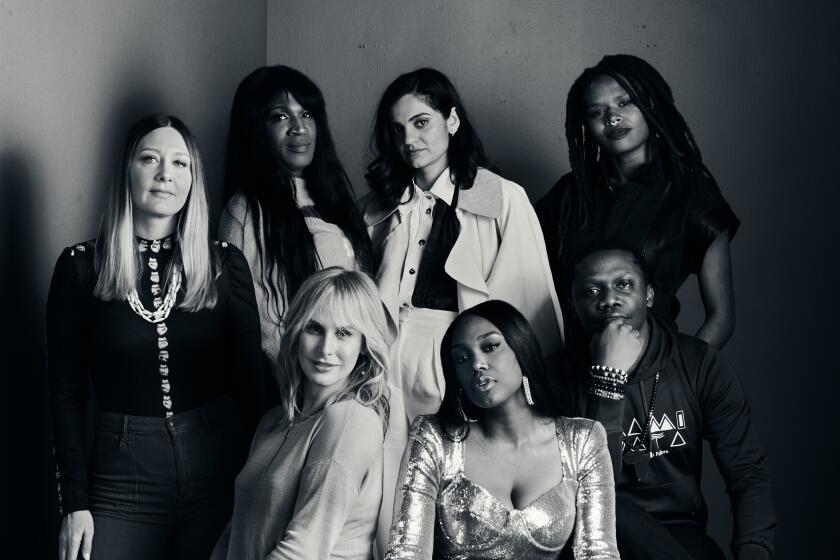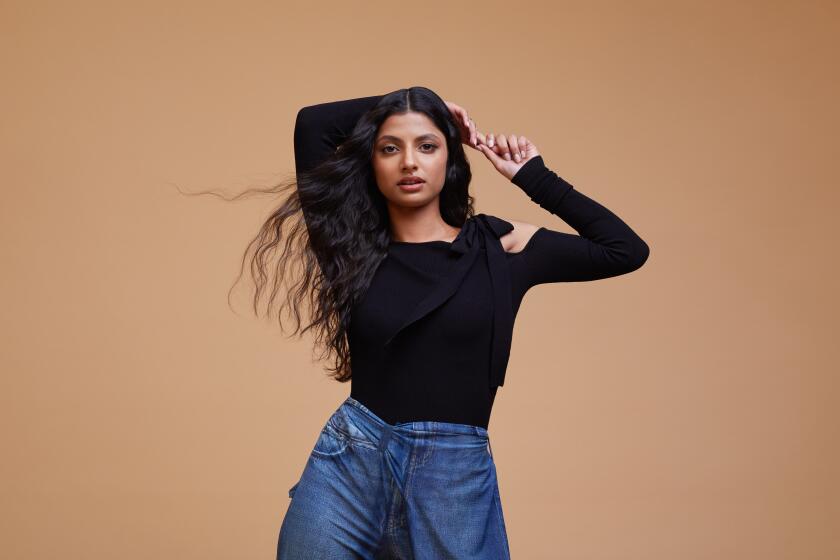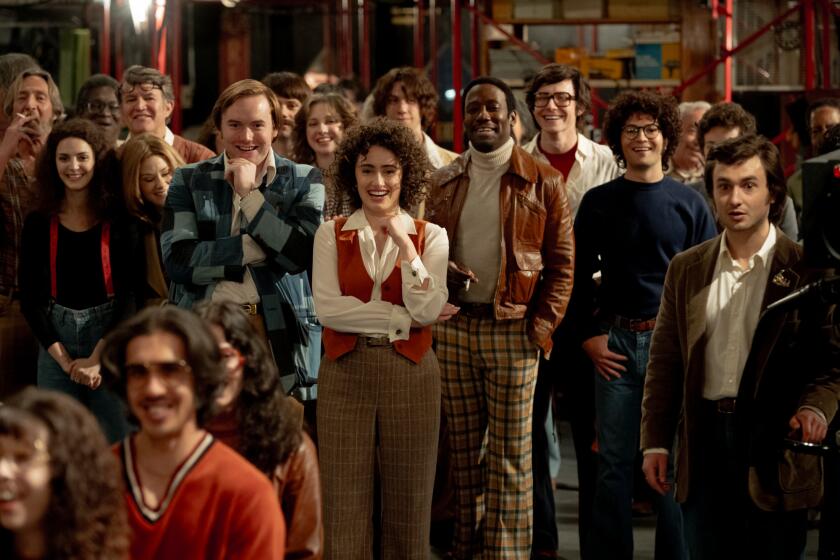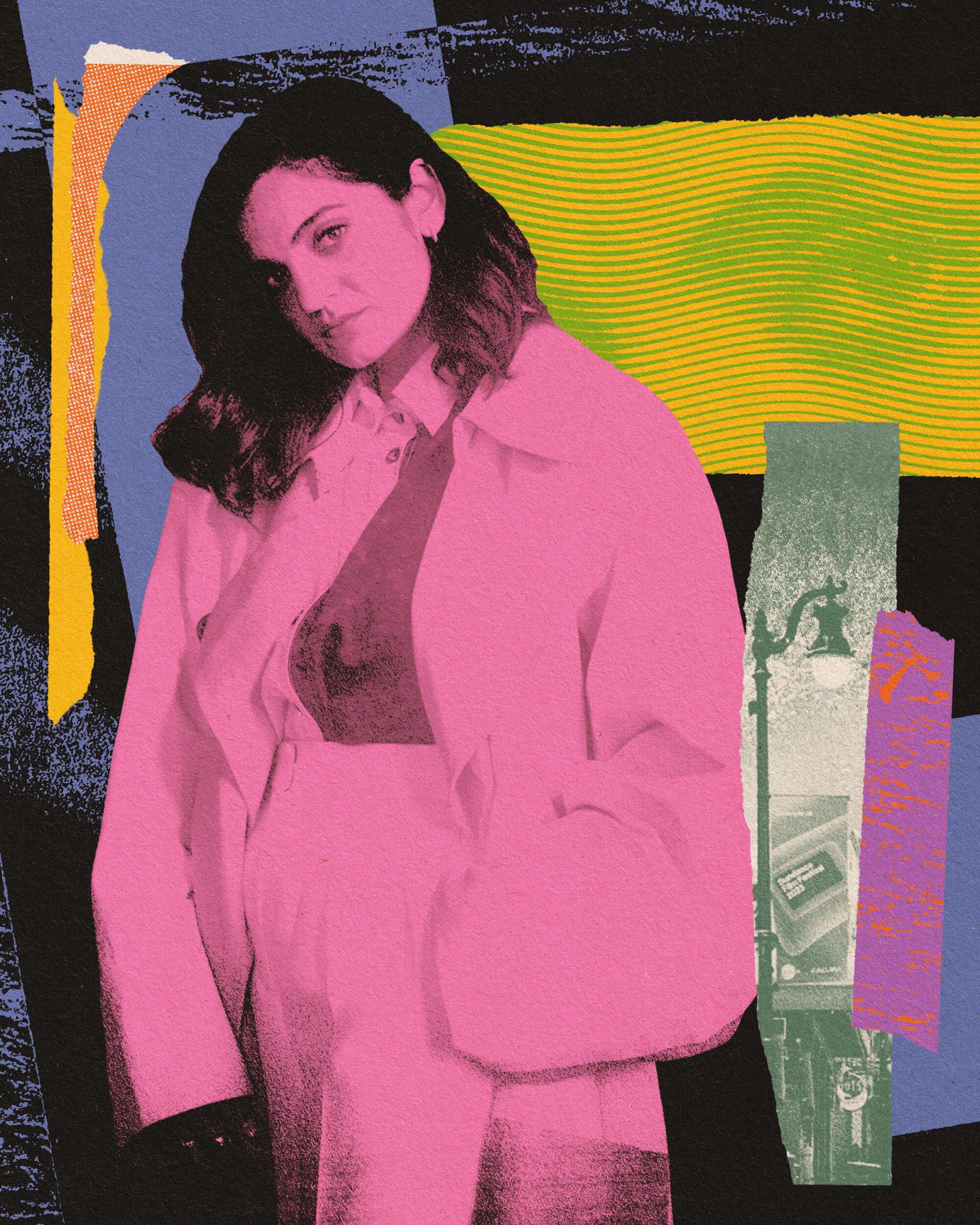
Heading into Sundance, where it premiered as part of the freewheeling Midnight section, Nida Manzoor’s “Polite Society” already had distribution in place with Focus Features. The film had a theatrical release in the U.S. in April and is already available for streaming on Peacock, also home to Manzoor’s six-episode 2021 series “We Are Lady Parts.”
Both projects draw from Manzoor’s background as a British-Pakistani Muslim. The film tells the story of London teenager Ria Khan (Priya Kansara), who dreams of being a stuntwoman. When her sister Lena (Ritu Arya) announces a rushed engagement, Ria becomes convinced there is something nefarious going on and is determined to prove it. Combining physical comedy and rousing martial arts action with a heartfelt exploration of sisterly bonds, the film is told in a distinctly idiosyncratic, genre-bending style.
Longtime festival programmer John Nein reveals eight tips for applying to Sundance. Plus, seven filmmakers reveal their festival dos and don’ts.
Since the movie’s already come out in the U.S. and the U.K., do you feel like “Polite Society” is behind you now? Do you feel sort of finished with the movie or does it still have life to you?
It still has life to me just seeing people get in touch as they find it online and on streamers. Part of me was hoping that it would do massive numbers at the box office, but that was me dreaming in a way. Because the truth is, films now, it’s not all about theatrical. It kind of lives on, and this is what I’m having to kind of accept. When “Guardians of the Galaxy [Vol. 3]” came out, it kind of disappeared, which was slightly heartbreaking. But it did make me realize I was sort of dreaming that this could be like “Top Gun [Maverick]” and make theaters come back. I had this slightly naive sense that it would be big in the way I was hoping.
Do you feel like you learned something at Sundance? Is there something you really took away from the experience of going to the festival?
I’m not sure if Sundance itself taught me anything. Probably more just seeing the film come out. That’s where I feel like I’ve learned what theatrical really is and I’m learning and rethinking what’s my next move after the film’s release. Sundance was just the most joyful. I was on cloud nine, living my best life and getting to meet people. I think the reality of [the] movie business hit me when I came back.
What is it making you rethink? What conclusions are you drawing about what your next steps should be?
I want to make more movies, but I think I’d always wanted to go to something next which was really big action spectacle. I really want to be theatrical, but now I feel like the theatrical space is sort of in flux and I don’t know if I’d want this next film that I have always been dreaming of, that I’ve always wanted to see on the big screen and make big in scale, go to straight to a streamer. And so I’m just kind of sitting with that a little bit and thinking and because I work in television as well and I get a lot of joy from that format as well, I’m kind of like, “Where is the next thing for me?”
To commemorate next year’s 40th edition of the Sundance Film Festival, we’re spending 12 months looking at the lives of 7 members of this year’s class.
For someone who’s getting ready to submit a film to Sundance for this upcoming year, would you have any advice for them? Is there something that you wish you knew as you were preparing to go?
Staying open and taking all the meetings, meeting anyone who’s a fan of yours. I realized I struggled a little bit in the U.K. industry because I found that not everybody was into the kind of genre mixing I was doing. At Sundance, I really found people who were excited about the specific thing that I was doing. A few of those champions that I met at Sundance have really helped my film stay in conversations, as it comes to roundups of top movies and stuff.
Before you went to the festival, even as you were going through the submission process, is there anything that you reflect on now that you wish you’d known or understood?
I was in a different position because I had this sort of studio and they were across the submitting of the film. I was kind of pushing for Sundance ‘cause I just always thought it felt like the right home for it. So it’s just sort of encouraging filmmakers to know why they are submitting to Sundance rather than any other festival. What is it specifically about their film that they believe would suit that versus a [SXSW] or a Telluride or anywhere else. And just being really specific because the more targeted you can be with your approach and speak to the ethos of the festival, I think that that’s the best shot you have.
What has it been like for you in the months since the festival? It must have been like being shot out of a cannon to have your world premiere at the festival to pretty quickly have the movie have its theatrical release.
It’s been a whirlwind. Pretty shortly after Sundance it was out and I was in L.A. [and] New York doing a bunch of press [and] in the U.K., doing press here. And it was all really exciting and just hearing how audiences are reacting to it, that was all pretty thrilling. But now I’m sort of locked into like writing [Season] 2 of my show, “We Are Lady Parts,” so it was all of a sudden quiet. I’ve had to ask my agents to just keep things on hold while I write. I’m really bad at multitasking, so I’m in sort of a writing rabbit hole, which has been quite good — all the kind of excitement around the film had to stop at some point because I needed to keep making, keep creating. It’s kind of back down to earth. But the film is no longer mine. It’s been a kind of process of letting it go and it’s interesting to hear audiences react differently. This thing I’d lived with for over 10 years, trying desperately to get made and having so much emotional heartache, is now out. It’s not mine anymore. And [there’s] something actually quite freeing about that as well.
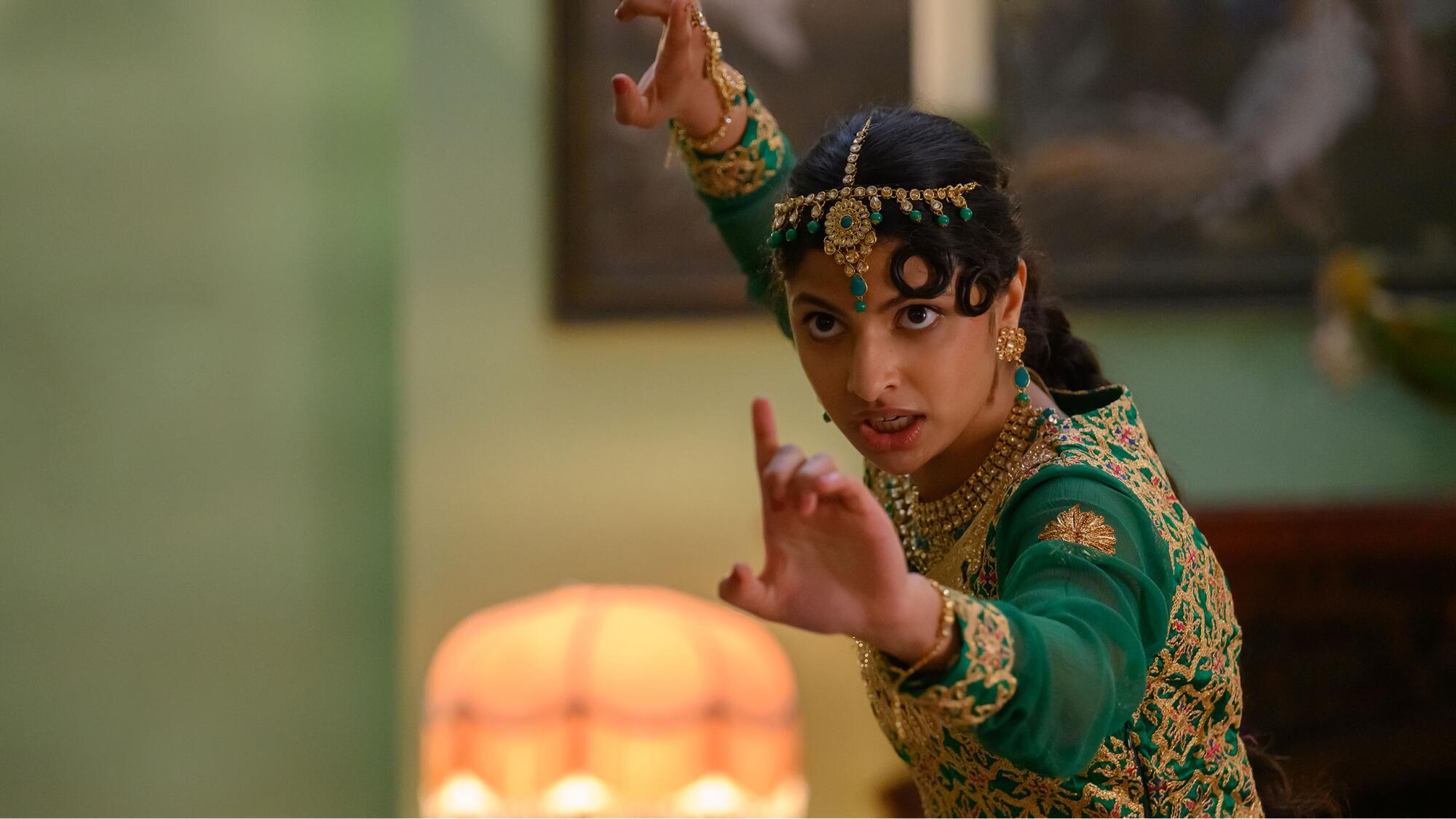
Did you feel like you got any kind of a “bounce” off of Sundance? Did you feel that suddenly more people were interested in your work, wanting to have meetings? Or were you getting sent more projects?
A hundred percent. It’s this kind of seal of approval, stamp of quality that one can only dream of as a filmmaker. My agents were just like, “We are inundated. When can you take these meetings?” It’s sort of changed the game for me in a really serious way. To have the film play at Sundance, everybody, all kind of industry folk, looked at that festival as a kind of marker of great movies. And the fact that my film was in there has just meant that I’ve since got a lot of interesting offers. So much stuff coming through that it’s honestly sometimes a little bit overwhelming and I’m having to remember or figure out what it is I want to do next rather than lose myself into a project that is exciting on the surface, but is it gonna give me the kind of creative fulfillment that something like “Polite Society” gave me?
Is it hard for you to be splitting your time between whatever you feel like “Polite Society” is doing for you and moving forward with your film career at the same time that you’re working on the next season of “Lady Parts”?
When I’m writing I find it really hard to switch into pitching for a different movie, which I know can be quite frustrating for my agents. When you have heat you need to capitalize. Everyone talks about heat. But actually they have been super supportive. Sometimes I check in with them like, “Should I be worried? Is my career over? Should I be more on it?” But they’re like, “No, you do your writing.” They’ve been telling me that it’s good when people know you’re working on another thing. Like, that’s a good reason you’re busy.
It must be good to have something else to be working on so you’re not just sitting around fretting like, “Oh no, I’m not getting meetings or the phone’s not ringing.”
The best thing about “Lady Parts” is that it’s pretty grounding in that I know these characters and I feel confident in moving between them. So there is something comforting about being in that world. Although writing a [Season] 2 has its own terrifying challenges as well. But it’s nice. It means that I’m not scrambling for what the next thing is. I know that this is the next thing and I get to do more of it myself. I think that’s what I’m keen to keep eye on. The fear of when you scale up and go bigger or do a bigger project, the sort of control I had for something like “Polite Society” and the kind of authorship I had was amazing, and I want to kind of continue to have that. But with big IP or working with a bigger showrunner and all these other things that come through the door, I constantly have that question. I’ve had the good fortune of making a film and a TV show in my voice and as big things come through, I’m kind of just seeing whether or not I can keep doing that.
Priya Kansara quit her day job to pursue acting without a single role booked. Countless stunts later, she’s the breakout star of ‘Polite Society.’
Do you have any memories from Sundance that stand out that weren’t your film?
I went dancing with my two lead actors and we went partying to some crazy club night. I didn’t even know, and it felt like the most fun because it is two actors who embodied my relationship with my sister. And we just let loose in a way that I felt like it was, weirdly, a kind of cathartic, spiritual thing. It was a club night, but we were all totally sober, just so full of adrenaline and joy. That was kind of a magical moment to just go crazy and finally have that sense of release. The film is done, we’ve premiered and we can just have fun now.
You mentioned the theatrical life of the movie and especially where you’re at now with it being in its post-theatrical life. Has it made you reflect at all on the world of independent film and making feature films now? Especially as someone who works in both television and film, are you thinking about movies and the state of independent film in a different way now?
I always knew it was tough, but to have your film going through it is a different feeling. I feel very lucky. I had such kind messages and support from people like Riz Ahmed. I remember him reaching out, being like, “How are you?” And I’m like, “I’m happy and I’m so glad it’s being critically well received. But I was hoping more people would come out to actually see it.” And he was just really supportive and being like, you know, films have a long life. He was sort of saying what the film means for the culture and especially South Asian representation, that’s been so little that this film, it’s gonna mean so much to so many people. He really tried to comfort me.
I didn’t realize how much I had wanted the film to be on the big screen. I think it’s because I’m that generation still where — I’m a millennial, so I’ve grown up online but not in the same online way as the sort of Gen Z. So my formative experiences were big screen spectacle audiences. And now it’s just not at the same level. So I’m having that sort of rude awakening, even though I knew it. Now, having gone through it with my own movie, I’m like, “No, I feel it.” I have such an excitement about film that I just want to keep trying to make it and keep finding ways to work in film and also just having to accept and embrace the kind of streaming world for that. That’s also where a lot of the audiences will find my movie. And when I reflect on my own growth and love of cinema, a lot of what I watched was films on TV as well, finding odd films and streaming them. So I’m kind of coming to like an acceptance of that because I definitely want to keep making movies.
Have you gotten any kind of response or feedback from South Asian kids as far as it being meaningful to see that on screen?
That’s been very overwhelming and just so nice. And probably been the thing that’s made me feel most proud about the film. Just seeing how it’s resonated with younger filmmakers, and just younger South Asian kids. Not just the representation of seeing yourself, but it being a weird film and it being allowed to be weird and not being preachy or serious and dark. Anything to do with a kind of minority group needs to have like a “worthiness” to it. [But “Polite Society”], it’s kinda popcorn, it’s light. Seeing audiences, especially South Asian, younger audiences, really connect to that makes me happy that it’s a kind of anarchic, wild film and it sort of represents the human spirit can be so many things.
More to Read
Only good movies
Get the Indie Focus newsletter, Mark Olsen's weekly guide to the world of cinema.
You may occasionally receive promotional content from the Los Angeles Times.
